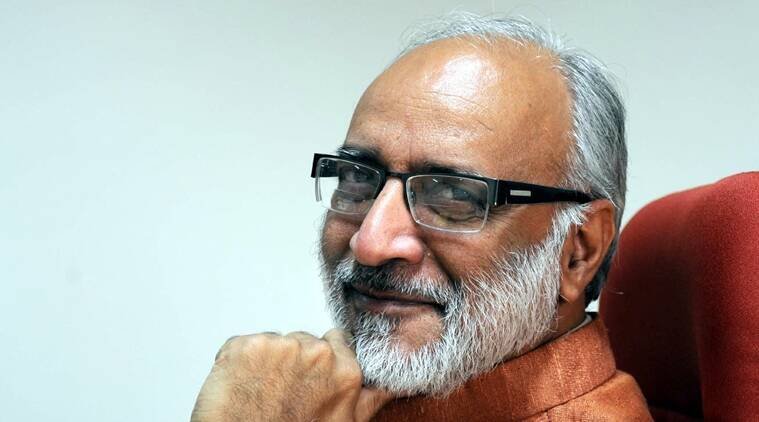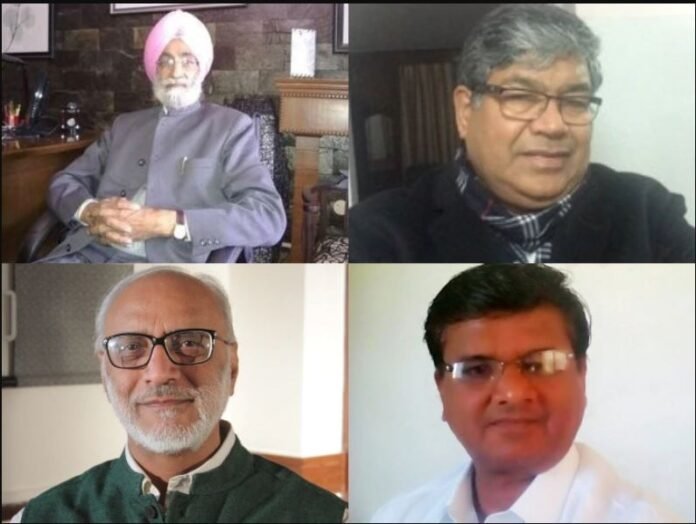All four of the panel members committee named by the apex court having several decades of experience, either as agricultural economists or farmer leaders but protesting farmers says there is no voice in the panel for the kind of reservations against the farm laws that the protesting farmers.
Ashok Gulati
Mr. Ashok Gulati is the chairman of Infosys for Agriculture in the Indian Council of Agricultural Research in the Indian Council of Economic Research (ICRIER), between 2011 and 2014, was the chairman of the Commission for Agricultural Costs and Prices (CACP), which advises the Indian government on agriculture. Price policy in many crops. In 2015, Gulati received the Padma Shri for her contribution as an agricultural economist.

Gulati had long been a proponent of liberalizing Indian agriculture and wholeheartedly welcomed the three agricultural laws, calling them “the 1991 moment for agriculture”. He believes that agricultural laws will not only provide more options to farmers, but will also help them earn better profits. For consumers, laws will lead to lower prices with lower fluctuations. The laws will also lead to making agri-value chains more efficient.
Gulati says the 2019 election manifesto is not at all different from what the Congress had promised and that their opposition is “a deep distrust of the private sector and markets”. He believes that to explain the “what these laws are like” to the farmers and how to benefit them is a “gross communication failure” by the central government and PM Modi’s deviation has made a difference. Have taken advantage of. Farmer.
Dr. Pramod Kumar Joshi
Dr. Pramod Kumar Joshi has served as the director of the National Academy of Agricultural Research Management, Hyderabad and the director of the National Center for Agricultural Economics and Policy Research, New Delhi. His research areas include technology policy, market and institutional economics.

Joshi is also a strong supporter of the recently introduced agricultural laws. In a piece last December of The Financial Express, he believes that “any decline in agricultural laws will force Indian agriculture to exploit emerging global opportunities.” Joshi said “regrettable that the farmers’ agitation has not been resolved despite the Centre’s positive response considering the actual demands”.
Like Gulati, he too believes that negotiations between farmers and the Center have failed because “some activists and political elements have turned the movement into disarray by coloring agricultural laws with distorted laws.”
Anil Ghanawat
Mr. Anil Ghanawat, 45, is the chairman of the Shatakari Sangathan, a farmer group in Maharashtra, that advocates for farmers who have greater market access. The Shetri organization was founded by the late Sharad Joshi in 1979 to demand “freedom of access to markets and technology” for Indian farmers. Ghanawat has been with Sangatana since 1982 and has been the center of several movements that either opposed government monopoly or supported liberalization of agricultural trade and the entry of multinationals into India.

Ghanawat, who does B.Sc in agriculture, is also an advocate of agricultural laws. Speaking to The Indian Express on Tuesday, he said: “We have supported these laws because it is a step in the right direction.” We have been fighting for more liberalization in agriculture for 40 years and this is the first government after independence to have done anything about it. “
However, Ghanawat wants the government to go even further and remove any opportunity of the Essential Commodities Act. It is important to note that this is contradictory to peasant farmers.
BKU President Bhupinder Singh Mann
Mr. Bhupinder Singh Mann is a former member of the Rajya Sabha and the current chairman of the All India Farmers Coordination Committee (AIKCC), which was also founded by Sharad Joshi.

He is also the head of the Indian Farmers Union. AICC, an umbrella organization of several farmer organizations across the country, met Union Agriculture Minister Narendra Singh Tomar in December and expressed its support in favor of agricultural laws. However, AICC representatives also believed that the government could make some amendments.
Protesting farmers are raising point that all four members have publicly been in favour of the farm laws and none of them has supported the demands for repealing them. Three of the four believe the protesting farmers are misguided; they are unanimous in their view that the farm laws will benefit the farmers immensely and fourth member Bhupinder Singh Mann believes farmer interests should be protected and, as such, is in favour of the amendments that the government has already acceded to such as a written guarantee that MSPs.

